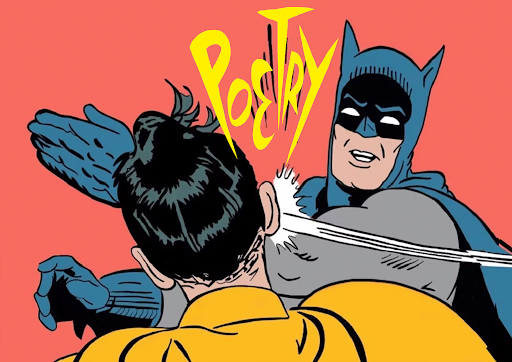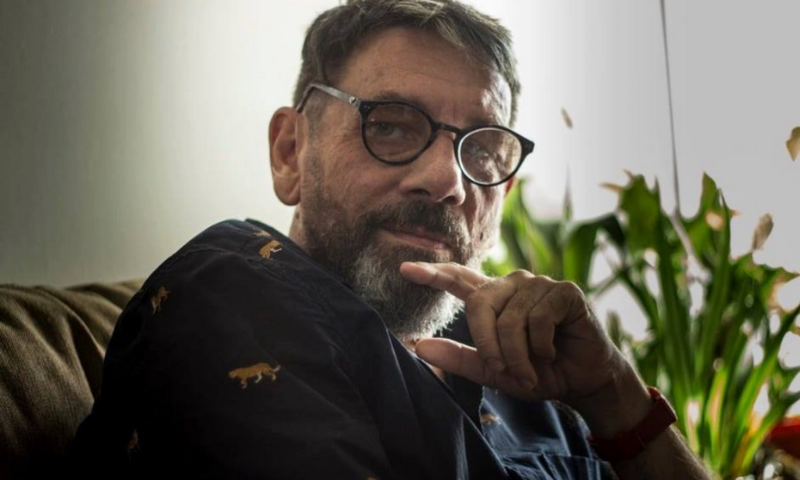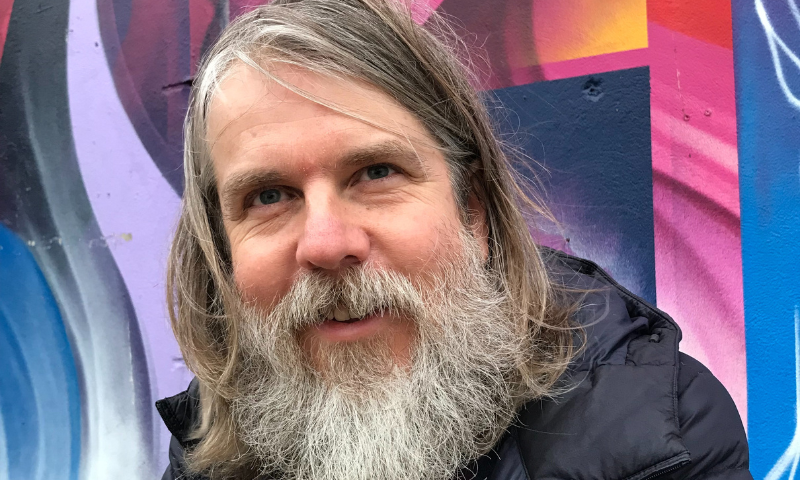As one of the translators taking part in the PTC’s first Queer Digital Residency, I chose Osvaldo Bossi as ‘my’ poet. Born and living in Buenos Aires, he teaches creative writing and runs the bimonthly Green Flash poetry nights there. In a career spanning three decades, he’s published a novel, a dozen poetry collections, and two anthologies.
His work spoke to me immediately with its yearning and humour. He writes lyrically about friendships, love, and encounters between men, and often ventriloquises through pop culture figures, such as The Love Poems that Coyote wrote to Roadrunner and 31 Poems for Robin (by Batman). I knew I was going to have fun with his work.
In six or seven months, I produced translations of twenty-four of his poems selected from across his career. I’d been in touch with him on WhatsApp right at the start when, via mutual friends, we checked that he was happy for his work to be part of the residency. In winter, he sent out an SOS on Instagram saying that he’d lost his phone but that friends and colleagues could text him so that he’d have our numbers again. So I did… I think.
Meanwhile, I was having weekly Zoom meetings with Paula Galindez, the Argentinian poet and translator. She is my counterpart in Buenos Aires on the project, creating the first Spanish translations of poems from Jackie Kay’s Bantam. It was the highlight of each week, chatting and helping each other with native-speaker intuitions about what worked and what didn’t in our respective project outputs.
Fast forward to March this year and we were in the final stages of preparing the London event to mark the end of the project. Osvaldo sent a video to be shown at the party, which I set about subtitling. On opening it I was surprised, but delighted and amused, to hear: ‘My name’s Osvaldo Bossi and I’ve just learned that some of my poems have been translated into English…’ What?!
He also made some beautiful observations about the creative interrelation of translation and writing: ‘I don’t know what this act of restaging will do to them, but I’m sure that what emerges will be good, because it’ll be connected with creativity, the loving creativity of the translator.’
Two weeks later, I went to Argentina with my UK university for an unrelated trip, and we made the most of this geographical luck by arranging a second launch of the project together in Buenos Aires. In the middle of the night before, I posted an Instagram story to promote the readings, and Osvaldo replied.
I suddenly felt awkward about not having consulted him as I worked. I wasn’t sure if I’d have the chance to talk to him before the event started next evening, but I knew I could explain why, so this is what I wrote (Dear Young Wonder is the title of his latest collection):
Dear Young Wonder 😉
I’m very excited to meet you tomorrow as well.
Sorry I didn’t write to you during the translation process… At first it was just shyness ☺️ but as I worked over and over on my versions, I eventually realised that the texts spoke for themselves and that I could trust them. My friends were saying, ‘But Jon, your poet’s alive, you can ask him questions, you know!?’
I’ll tell you more at the event. It’s a dream to be here to read with you. I’m the grateful one!
Sending a hug.
The event did pass by like a dream. We read our work, we had questions from the audience, and I just about got by with my rusty spoken Spanish. The last poem I read in English, I’d saved till the end because it was the one I felt I’d taken most gambles with in terms of language and register, but I loved it and didn’t want to miss the chance to read it with Osvaldo.
It’s called Flash and it’s about longing for a partner, not caring whether they’re some ‘fantasy-forever’ boy – in fact almost preferring that they are not. In European Spanish, un flash is an uncomplicated borrowing, referring to a camera flash or a news flash. In Argentinian Spanish, flash can be a brazen lie, an act of self-delusion, or a mismatch of perceptions between two subjective parties about the same situation.
At the reception after our reading, I got to spend time with Osvaldo over wine and empanadas. I was extraordinarily happy to have met him in person, and to start to get to know him. We talked a lot about perfectionism and self doubt, and he gave me some simple advice for life (and for writing) that hit me like a thunderbolt. I explained how I’d tried to create the same resonances of meaning for the word flash in the English version, how hard it was, and how I’d ended up shifting the images around in the poem, but wasn’t sure if I’d hit the mark.
‘Are you talking about Flash?’
I nodded.
‘Oh, well… It was just “Flash” the DC character, you know?’
Jon Herring is an early career translator and writer who lives in London. He studied French and Spanish Lit (with Basque and Catalan) as an undergraduate, and returned to literary translation in 2021 after a couple of decades doing academic research in linguistics and working with young people as a speech and language therapist.
Jon is currently doing an MA in Literary Translation at UEA in Norwich. His working languages are Spanish, Portuguese and Catalan. As well as participating in the PTC’s first Queer Digital Residency last year, he was selected for the UNESCO Cities of Literature poetry translation programme in Ljubljana in 2023. He has also led translation workshops in Norfolk primary schools this summer as part of the Queen’s College Translation Exchange and BCLT’s Creative Translation Ambassadors project.
His translation of Paula Galindez’s poem Hundir las manos en la Tierra will appear in the Canadian journal Long Con in September, and his experimental memoir Quartet will be published by Glasgow indie press Thi Wurd in 2024.



